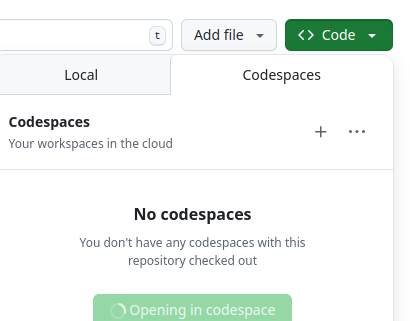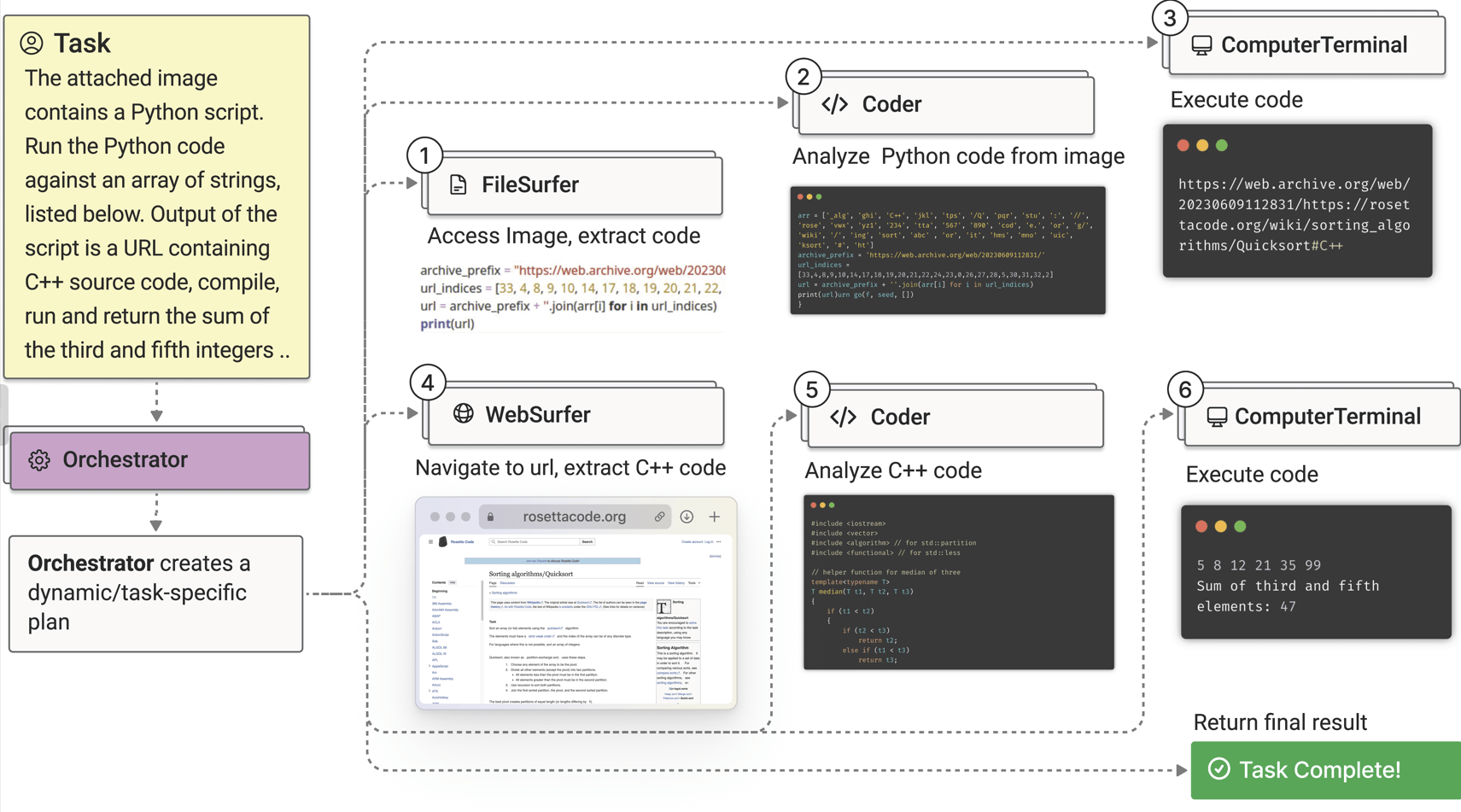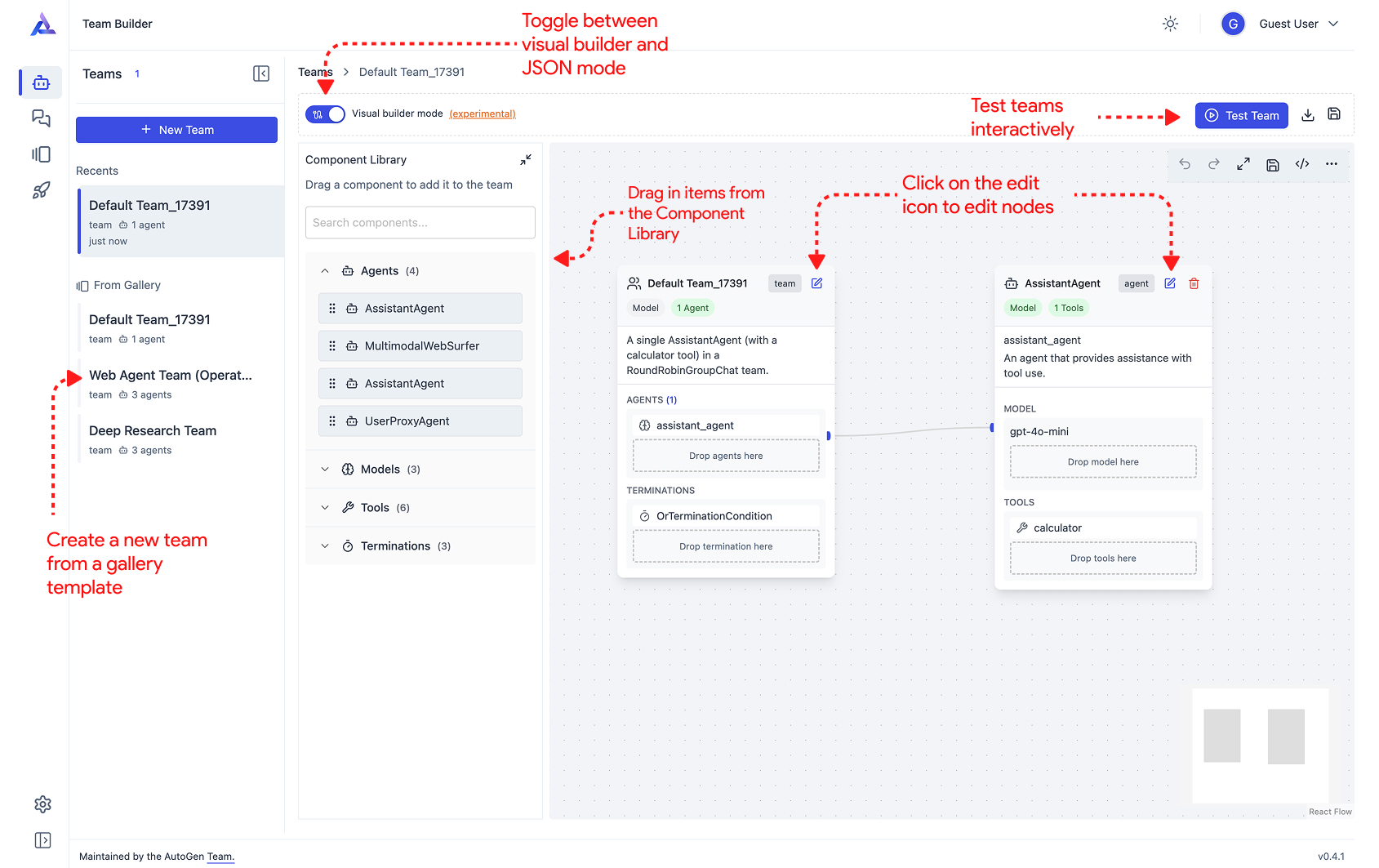⚠️ Caveat ⚠️¶
AI Agents is a moving frontier: this snapshot of capabilites from Q1'25 will become obsolete
This workshop uses the Autogen Framework¶
Autogen is Microsoft's agentic framework designed to enable the development of intelligent agents. It provides tools and capabilities for creating autonomous systems that can interact, learn, and adapt to various tasks and environments. This framework is part of the broader effort to advance AI technologies and their applications in real-world scenarios.
To follow along you'll need:
- Linux, Mac, or Windows machine with Python 3.10 or above
- An API key - this model uses keys from OpenRouter.ai. OpenRouter provides many models through an "OpenAI compatible" interface
pip install openai autogen-agentchat autogen-ext[openai,magentic_one] autogenstudioplaywright installis needed for web browsing
OR 👇¶
Quick start using GitHub¶
- Use/ create a personal GitHub.com account
- Create your own fork of the repository at https://github.com/chepyle/multiagent-demo
- Run the repository in a GitHub Codespace
Creating a github codespace (recommended)¶
- Go to https://github.com/chepyle/multiagent-demo - contains all workshop materials
- Click "fork project" to create your own copy
- Click Code > Codespaces > Start Codespace from main branch

- Wait for codespace to boot and package installation (~5min). A VSCode session will appear in browser.
- Type
./run.shat the terminal to create an app, use passwordsapa

- Click the link or go to https://localhost:8081 if running on your local machine
AI applications for the Pharmaceutical Industry¶
Healthcare is an huge opportuntiy for AI applications
- General Research e.g.
- Discovery
- Drug Design
- Development
- Molecular Property Prediction
- Process Simulation
- Manufacturing
- Process Monitoring
- Supply Chain
- Commercial / Enterprise
- IT Pipelines
- Forecasting
- Data Science
A new front for AI: Multiagent Frameworks¶
AI that "does stuff": enabling control of software or other AI models
A rapidly emerging space, there are a number of popular libraries and frameworks, many using low-/no-code interfaces:
- AutoGPT
- Microsoft: Autogen, Copilot
- AG2: The "other" autogen
- Langflow
- LangGraph
- Flowwise
- Google Agent Development Kit
- Crew AI
- Amazon: Bedrock flows
Note: Coding tools 🦉 > 🐹 No code tools
Core Concepts¶
Multi-Agent Building Blocks
- Tools
- Models
- Agents
- Multi-Agent Teams
- Orchestration
- Termination
Models 🧠¶
Large Language Models
e.g. GPT-4o, DeepSeek-R1, Claude, Llama, and others
Models have different capabilities:
- Function calling : can run code commands (tools)
- JSON Output : can return computer-readable structured results
- Vision : Can accept multimodal (image + text) inputs
Access is through an application programming interface (API) with secret token
⚠️ A token has been generated and shared for this workshop, be careful: it is like giving out your credit card!
Agents 🧍🏻¶
Agents are the combination of Models and Tools, along with a descripton and set of instructions
e.g. Assistant Agent, Web Surfer Agent
Multi-Agent Teams 🧑🤝🧑¶
Tasks can be decomoposed and assigned to multiple agents with roles and personas
e.g. Writer/Editor , Resarcher/Summarizer/Verifyer teams
More examples from Autogen Studio creator at https://multiagentbook.com/labs/
Magentic One - Example Architecture¶

Future of agents¶
Model Context Protocol (MCP) released by Anthropic is gaining popularity as a lightweight standard for interfacting LLMs and applications
A16Z article on MCP shows a recent snapshot of the landscape:

⚠️ Safety Caveat ⚠️¶
Autonomous agents carry risks and uncertainties!
- Arbitrary code execution
- High token utilization
- Sending out LLM-generated results into the internet
Be sure to:
- Run in a sandboxed environment e.g. local docker or codespace
- Place limits on token utilization costs
- Utilize a human-in-the-loop via
UserAgentfor sensitive tasks
Follow along in a github codespace (recommended)¶
✅ Go to https://github.com/chepyle/multiagent-demo - contains all workshop materials
✅ Click "fork project" to create your own copy
✅ Click Code > Codespaces > Start Codespace from main branch

✅ Wait for codespace to boot and package installation (~5min)
🚀 Type ./run.sh at the terminal to launch workshop app, use password sapa

✨ Click the link or go to https://localhost:8081
Autogen Studio Layout¶

Practical Considerations¶
What LLM to use?
Performance: Read articles, or check leaderboards e.g. lmarena, Artificial Analysis
Cost, Latency: compare at https://openrouter.ai/models
Capabilities: Support for Tool use, output structured information and/or logprobs
Implementing code
Once a multi-agent system yield promising results, it can be exported as code for automatic testing
Practical Considerations¶
Common Errors
openai.NotFoundError: Error code: 404 - {'error': {'message': 'No endpoints found that support tool use...
The selected model does not support tools, try using OpenAI, Gemini, Qwen-Turbo
Exception: 'NoneType' object is not subscriptable
Model call did not return a result. Can be due to latency on the provider side, but likely hitting limits of free-tier models.
"I made a change to the team, but I dont see a difference"
The teams and components are represented by JSON, making changes to components may not update uses elsewhere. Edit JSON directly to make sure changes are implemented.
Other Bugs 🐛
Autogen Studio is still in development, some features may be brittle
OpenRouter.ai Models may not be fully compatible with Autogen's OpenAI expectations
Our Tasks:¶
Web search:
"Search the web and summarize the current state of GLP-1 drug development, create a markdown-formatted report to document the findings, be sure to include references to your sources"
Coder/Analyst/Web:
Research "innovation from China related to oncology" , write code to create a database to store the key players and research subjects, with the goal of refreshing the database over time
Example Agent Files¶
A finished version of the workshop tasks are available in the ./app.zip folder.
To use in autogen studio run: ./run.sh, password sapa
Code examples are in ./src/ Be sure to use the environment variable OPENROUTER_API_KEY
After the Workshop¶
The code repository https://github.com/chepyle/multiagent-demo will remain public, but the API keys will be deactivated.

To use this code after the workshop, be sure to replace any api keys and base urls with the info from your LLM provider of choice
As Autogen Studio (currently v 0.4.2) changes, this code will become obsolete, but the learning never stops!
